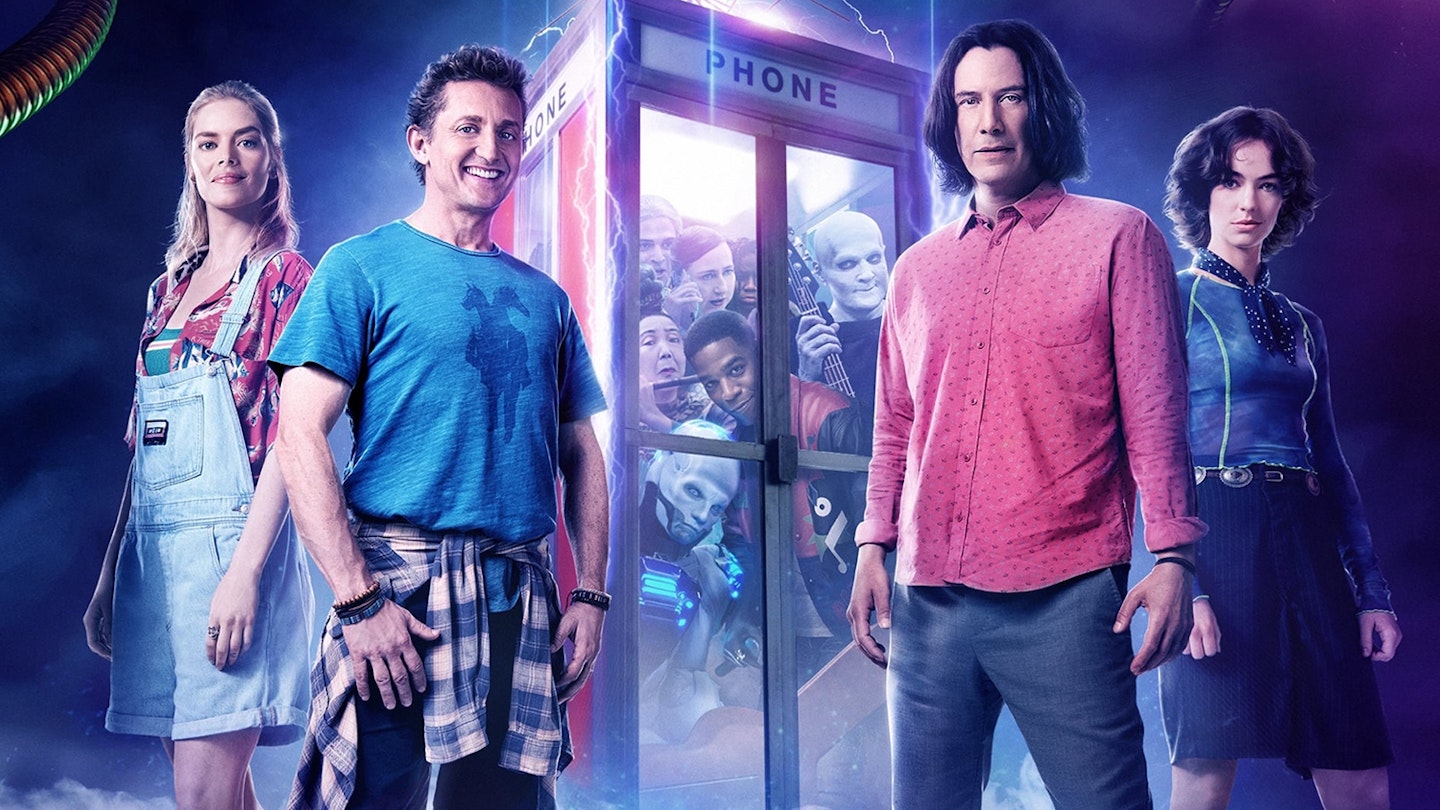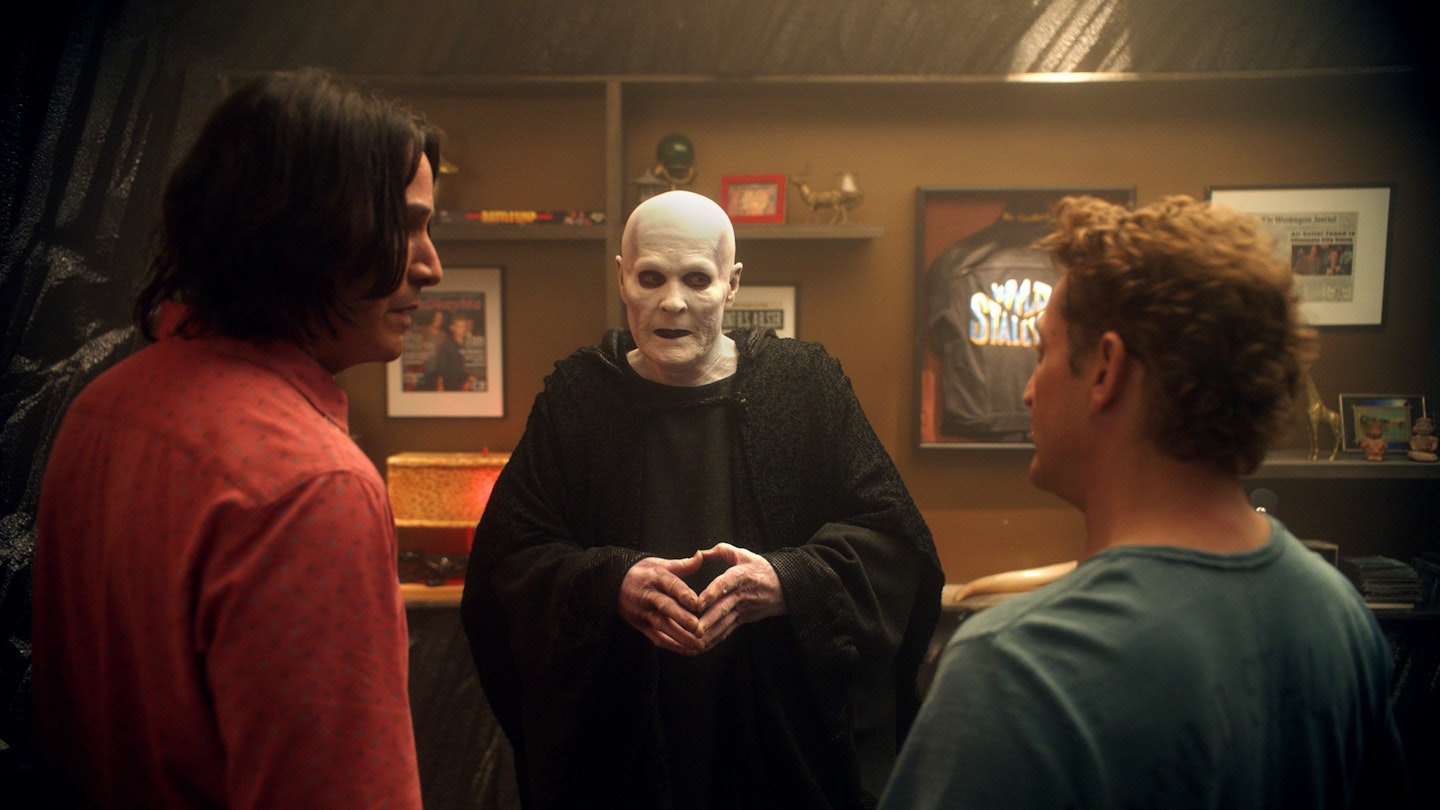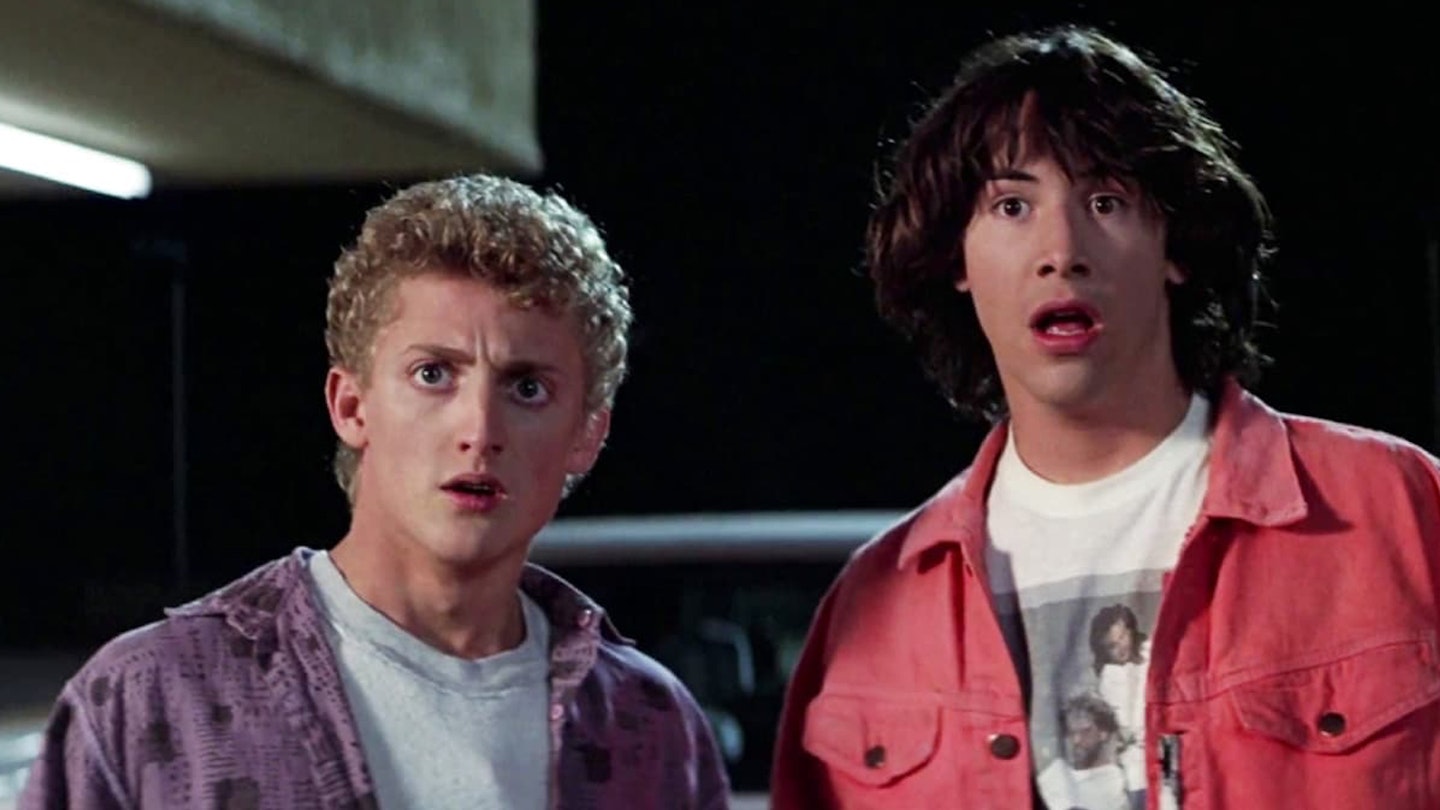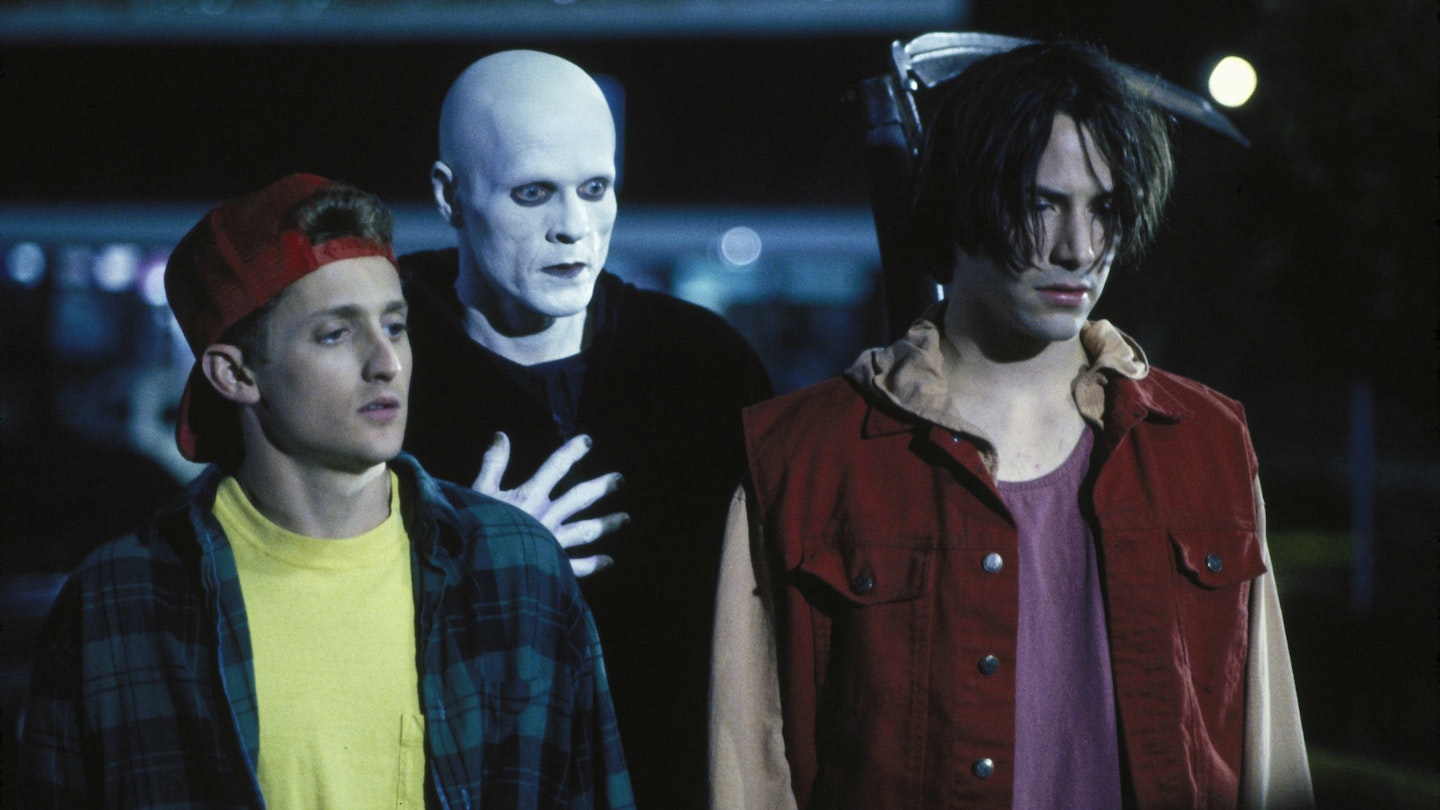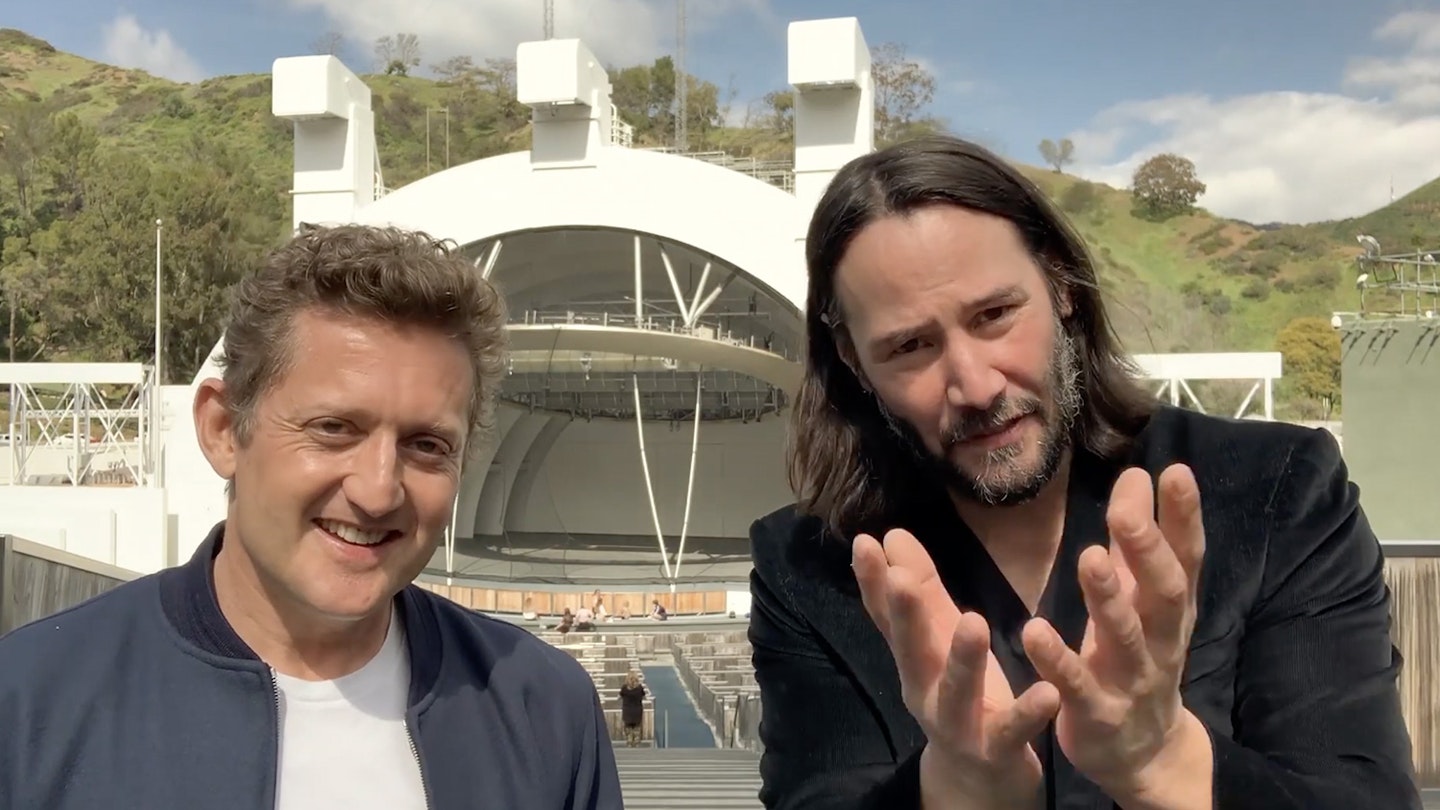One very satisfying aspect of Bill & Ted's Excellent Adventure was its refusal to redeem the pair, allowing them to depart as stupid as they arrived. Useful for a sequel too, as without any acquired wisdom Bill & Ted's dedicatedly dumb surfer cool (the characters' central joke) can remain impervious to accepted logic and the first film's lunatic humour need not be diminished.Bogus Journey begins with what was hinted at in Excellent Adventure - that in the future Bill & Ted culturally dominate the planet. (It presumes a more-than-working knowledge of the first film, and so wastes no time.) However, the wicked DeNomolus is about to travel back to 1990 (where Bill & Ted have left school and dream of stardom with their awful heavy metal band), kill the guys and replace them with looklike, thoroughly nasty androids, "the evil robot usses". While this creates confusion in town, Bill & Ted appear to be breezing through the hereafter: they, literally, gamble with death and beat the Grim Reaper at parlour games like Twister and Cluedo; hang out in Hell ("Just like an Iron Maiden album cover"); visit Heaven to get help in making their own androids ("the good robot usses"); and return to "save the babes". All with the same idiot expressions of perplexed optimism and still unable to play their guitars.Every bit as acutely observed as its predecessor - all sorts of verbal asides and background visual gags supplement the free-flowing main jokes, Winter & Reeves (Bill & Ted) achieve new levels as teenage morons and the supporting cast (notably Sadler as the foppish Grim Reaper) play out the ridiculousness with the dryest of Pythonesque straight faces.
Bill & Ted’s Bogus Journey Review

A 27th century dictator sends a pair cyborg assassins back in time to kill West Coast airheads Bill and Ted, whose music has founded a future utopia.
Release Date:
03 Jan 1992
Running Time:
93 minutes
Certificate:
PG
Original Title:
Bill & Ted’s Bogus Journey
Perhaps even smarter than the original as it expands the potential for the surreal and ties up all the loose ends, managing, quite remarkably, to give its own pointlessness a purpose. Will also appeal to fans of Douglas Adams's novels.
Related Articles
Just so you know, we may receive a commission or other compensation from the links on this website - read why you should trust us
